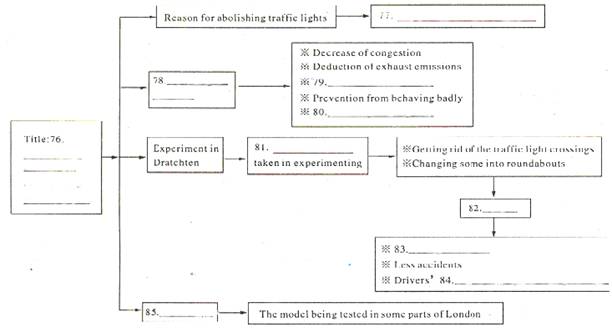题目内容
There are many theories about the beginning of drama in ancient Greece. The one most widely accepted today is based on the assumption that drama evolved (演化) from ceremony. The argument for this view goes as follows.
In the beginning, human beings viewed the natural forces of the world -even the seasonal changes - as unpredictable, and they sought through various means to control these unknown and feared powers. Those measures which appeared to bring the desired results were then kept and repeated until they hardened into fixed ceremonies. Eventually stories arose which explained the mysteries of the ceremonies. As time passed some ceremonies were abandoned, but the stories, later called myths, remained and provided material for art and drama.
Those who believe that drama evolved out of ceremony also argue that those ceremonies contained the seed of theater because music, dance, masks, and costumes were almost always used. Furthermore, a suitable site had to be provided for performances and when the entire community did not participate, a clear division was usually made between the "acting area" and the "auditorium " . In addition, there were performers, and, since considerable importance was attached to avoiding mistakes in the performing of ceremonies, religious leaders usually took that task.. Wearing masks and costumes, they often acted other people, animals, or supernatural beings, and imitated the desired effect -- success in hunt or battle, the coming rain, etc. as an actor might. Eventually such dramatic representations were separated from religious activities.
Another theory traces(追溯) the theater's origin from the human interest in storytelling. According to this view, tales (about the hunt, war, etc) are gradually developed, at first through the use of action and dialogue, and then through the assumption of each of the roles by a different person. A closely related theory traces theater to those dances that are primarily rhythmical and gymnastic or that are imitations of animal movements and sounds.
Which is the best title of the passage?
A. Religious activities in ancient Greece. B. The ceremonies in ancient Greece.
C. Drama theories. D. The origin of Greek Drama.
According to the passage, drama_______________.
A. was played in memory of ancient Greek ceremonies
B. was a form of ceremony played by ancient Greeks to control unknown powers
C. evolved out of ancient Greek ceremonies with time passing by
D. is one of the measures Ancient Greeks took to view natural forces
What do drama and ancient ceremonies have in common according to the passage?
A. Both of them were performed in theaters.
B. Music, dance, masks, costumes and so on were contained in both of them.
C. Religious leaders were in charge of both of them.
D. Both of them were concerned about natural power.
In tracing the beginning of drama, which of the following is not mentioned?
A. Planting. B. Religious ceremonies.
C. Gymnastic. D. Storytelling.
It can be inferred from the passage that____________________.
A. human beings loved to tell stories
B. people could do nothing about nature
C. religious leaders tried to develop the effective form of drama
D. religious activities played a very important role in the evolvement of drama
【小题1】D
【小题2】C
【小题3】B
【小题4】A
【小题5】D
解析:
【小题1】第一段问主旨段落,特征句为“ The argument for this view goes as follows” 说明作者先提出主题然后分述。
【小题2】从第二段最后一句和第三段首句可知。
【小题3】从第三段可知。
【小题4】文章第三段讲的是喜剧可以追溯到Religious ceremenies 第四段又谈到喜剧还可追溯到Storytelling 和Gymnastic以及primarily rhythmical。只有Planting未及。
【小题5】 由三、四段推出答案。

